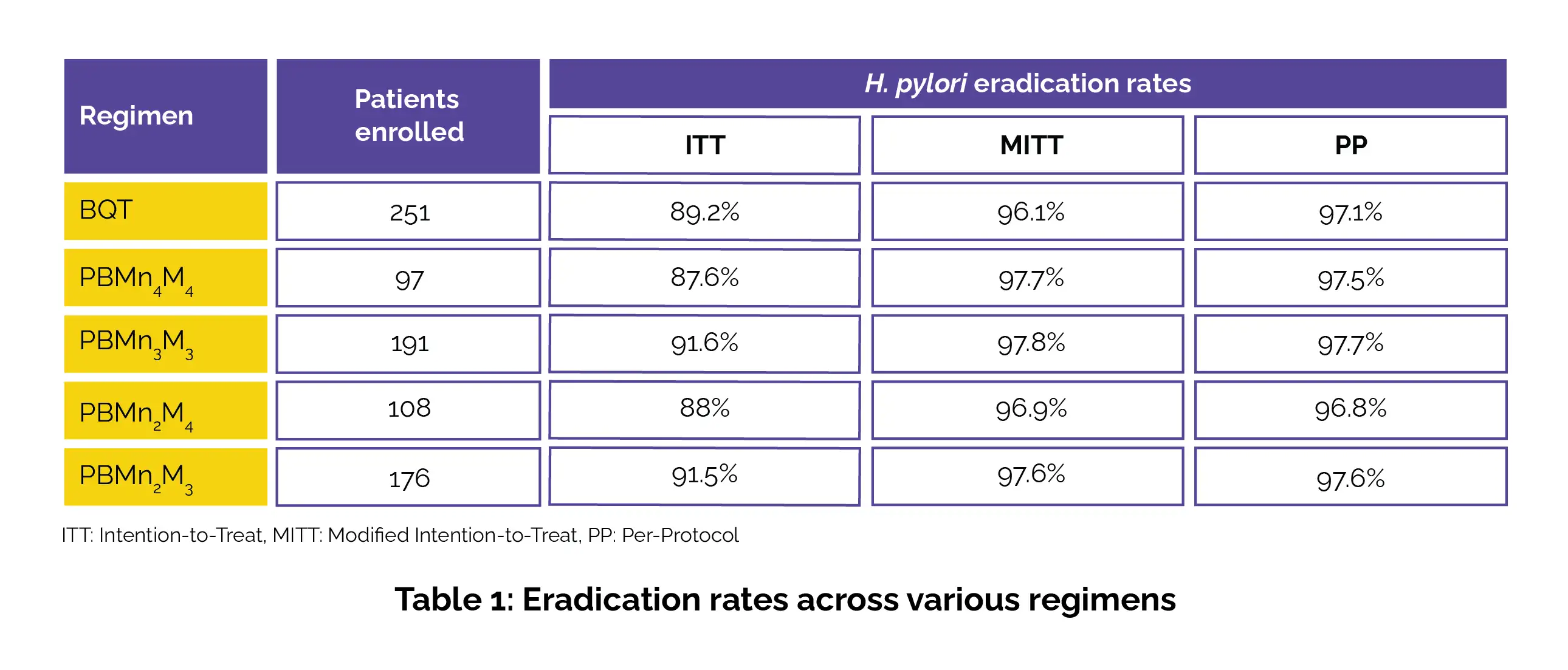Categories
Change Password!
Reset Password!


A novel bismuth-containing quadruple therapy with reduced doses of Minocycline and Metronidazole offers a safer and more compliant option for H. pylori rescue treatment, surpassing the classical regimen.
The optimal dosage of Minocycline for eradicating Helicobacter pylori (H. pylori) is still debated. A new retrospective study compared the efficacy and safety of four different Minocycline and Metronidazole regimens to standard bismuth quadruple therapy (BQT) in H. pylori-infected patients with multiple treatment failures. Notably, a new low-dose regime outshined the usual regime. In this real-world evidence study, a total of 823 patients received 14-day therapy as follows:
Eradication was assessed via 13C-urea breath test six weeks post-treatment, and all adverse effects were documented. Eradication rates were high across all regimens as shown in Table 1 below:

Compliance was best in the PBMn2M3 group, which also reported fewer moderate and severe adverse events. Metronidazole resistance did not impact efficacy. Hence, the new low-dose Minocycline and Metronidazole BQT serves as an effective and safer alternative to conventional bismuth therapy for H. pylori patients needing rescue treatment, with enhanced patient adherence.
Helicobacter
Optimization of Minocycline-Containing Bismuth Quadruple Therapy for Helicobacter pylori Rescue Treatment: A Real-World Evidence Study
Yu Huang et al.
Comments (1)